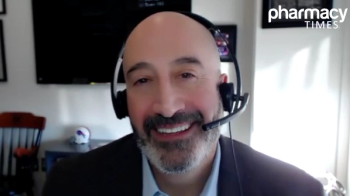
Pfizer COVID-19 Vaccine’s Updated Cold Storage Requirements Will Get More Doses in More Arms

Pharmacy Times® interviewed Farah Towfic, PharmD, MBA, the director and CEO of operations at US Pharmacopeia, on the FDA’s approval of the Pfizer and BioNTech COVID-19 vaccine’s updated cold storage requirements.
Pharmacy Times® interviewed Farah Towfic, PharmD, MBA, director and CEO of operations at US Pharmacopeia (USP), on the announcement from Pfizer and BioNTech regarding the update on cold storage requirements for their COVID-19 vaccine. Approved on February 25 by the FDA, these changes will offer greater flexibility to administrators to bring more vaccine to more people around the world.
Towfic explained that this updated cold storage requirement for the Pfizer and BioNTech vaccine will allow more pharmacies access to the vaccine than was previously possible.
“The undiluted frozen vials can be transported and stored at the conventional pharmaceutical freezers for a period of up to 2 weeks, and that's of course in addition to the 120 hours that's allowed in the refrigerated state,” Towfic said. “So that's exciting—it gives many more pharmacies access to the vaccine.”
With more pharmacies getting access to the vaccine, more people will also be able to sign up to become vaccine providers as well, according to Towfic.
“It actually enables more health care providers to be able to help get more vaccines in arms for more people because it essentially gives us 19 days total, that 2-week period in a traditional freezer, plus that 5-day period in the refrigerator,” Towfic said. “It helps us to be able to get the 600 million doses in arms much, much more quickly.”
In order to ensure as many doses of the vaccine get used per vial, Towfic explained that there are
“One of the key questions that we wanted to address
Newsletter
Stay informed on drug updates, treatment guidelines, and pharmacy practice trends—subscribe to Pharmacy Times for weekly clinical insights.


























